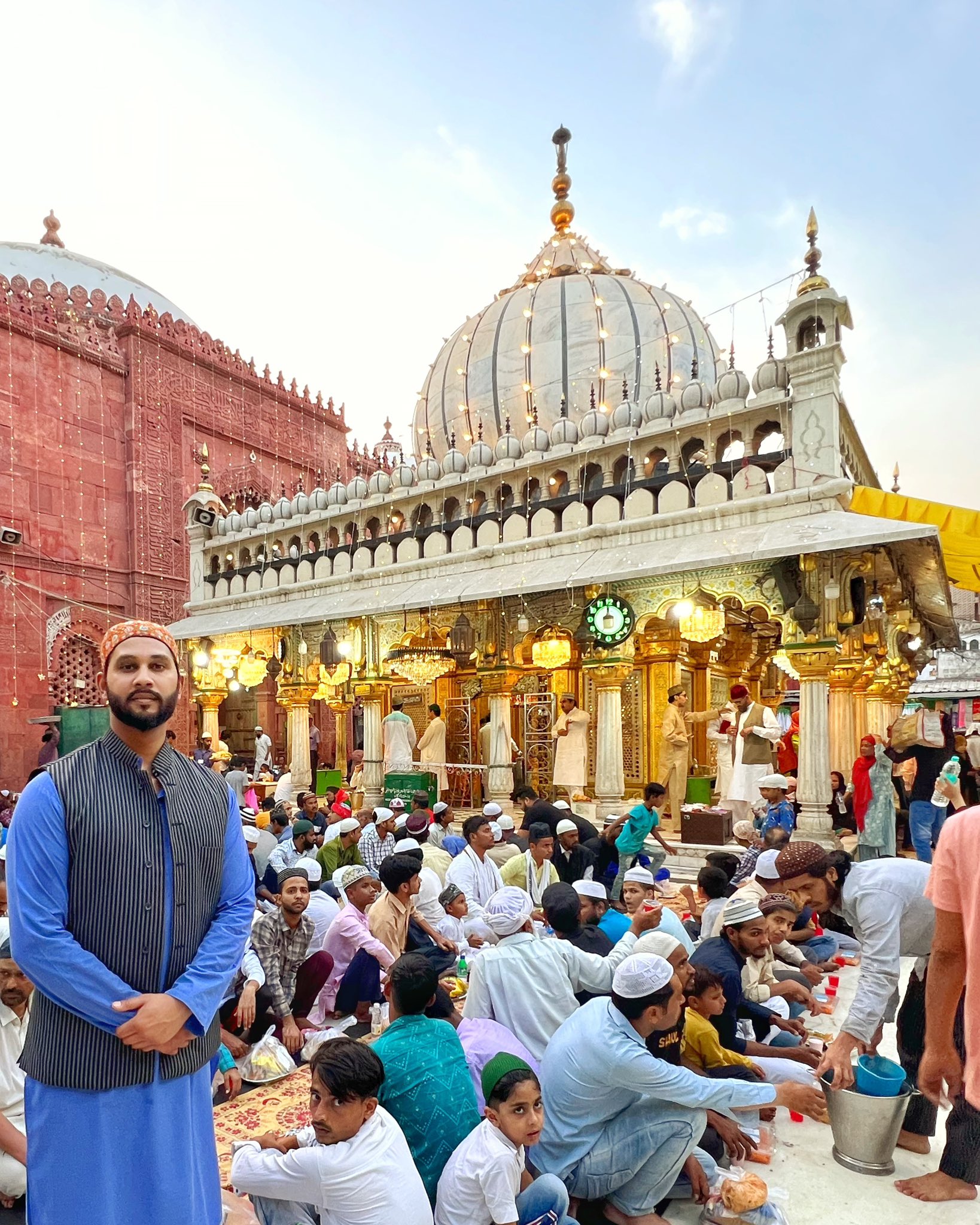.webp)
Maheep & Hafeezur Rahman
India and Central Asia share a deep-rooted spiritual and cultural bond that spans over a millennium, with Sufism as the lynchpin of this relationship. This mystical branch of Islam has left an indelible mark on the religious, artistic, and intellectual landscapes of both India and Central Asia, creating a shared heritage that persists to the day.
Sufism is a mystical and spiritual dimension of Islam that emphasizes the seeker's relationship with the Almighty through inner contemplation, meditation, purification of the heart, devotion, dedication, and submission from the core of the soul.
Modern-day Central Asia, comprising Kazakhstan, Uzbekistan, Tajikistan, Kyrgyzstan, and Turkmenistan, has been a significant hub of Sufi thoughts and practices and India has played a vital role in the development and dissemination of Sufism in the region. Sufism arrived in the region with the spread of Islam, and numerous Sufi orders emerged over time, each with its distinct rituals and practices. Despite the challenges posed by modernity and globalisation, secularism, and religious extremism, Sufism survived and adapted in contemporary India and Central Asia. In recent years both the regions are experiencing a revival of Sufi traditions.
Roots of India's Sufi culture
The emergence of Sufism in Central Asia and its subsequent spread to India in the early Islamic period laid the foundation for a lasting spiritual connection between the two regions. Sufi missionaries and scholars travelled between India and Central Asia, engaging in religious, intellectual, and artistic exchanges that enriched both regions. Some of the most influential Sufi orders in Central Asia include the Naqshbandiyya, Yasawiyya, and Qadiriyya. And they established khanqahs (Sufi lodges) and zawiyas (spiritual retreats) that served as centers of learning, spiritual practice, and social service.

Iftaar at Hazrat Nizamuddin Auliya's dargah in Delhi
These institutions facilitated the transmission of Sufi knowledge and teachings, helping to spread Sufism throughout the region and beyond. India has played a significant role in the development and spread of Sufism in Central Asia through various ways and means. Indian Sufi saints and scholars travelled to Central Asia, sharing their teachings and knowledge, while Central Asian Sufi masters visited India to learn from local Sufi traditions and transmit their knowledge back to their homeland.
The establishment of various Sufi orders (tariqas) in India, such as the Chishtiyya, Suhrawardiyya, and Qadiriyya, further cemented this connection. These orders, which traced their spiritual lineage to Central Asia, played a pivotal role in disseminating Sufi teachings and practices throughout the Indian subcontinent where it was adopted by the people, assimilated into the local culture, and enriched through blending. In turn, Indian Sufi orders and their distinct practices also influenced the development of Sufism in Central Asia
The Mughal Connection
The Mughal Empire (1526-1858), founded by the Timurid prince Babur, had strong connections to Central Asia, and played a significant role in consolidating the Sufi connect between India and Central Asia. Mughal rulers were known for their patronage of Sufi orders, scholars, and artists, which facilitated the exchange of ideas and fostered vibrant Sufi ideas and culture between India and Central Asia.
At the same time, Mughal architecture represents a synthesis of Indian and Central Asian influences, reflecting the enduring Sufi connection between the two regions as well. Sufi shrines, mosques, and mausoleums built during the Mughal era are a testament to this shared architectural heritage.
India's influence on Central Asian Sufism is also evident in the shared Sufi literature, music, culture, and artistic heritage. The Persian language, which was widely used in both regions, served as a vital link between India and Central Asia, facilitating the exchange of Sufi literature, poetry, music, thoughts, and ideas. Most of the prominent Sufi poets from both regions composed their works in Persian, contributing to a shared literary heritage that transcended geographical boundaries. Renowned Indian Sufi poets like Amir Khusrow, Kabir, Dara Shikoh, Bedil, and Rabindra Nath Tagore influenced Central Asian Sufi thought and practice, while Central Asian poets like Rumi, Saadi, Hafez, and Umar Khayyam impacted Indian Sufi poetry.
The exchange of Sufi musical and artistic traditions further enriched the cultural connection between India and Central Asia. Indian musical genres, such as qawwali, were influenced by Central Asian Sufi practices, while Central Asian art and architecture drew inspiration from Indian aesthetics. The cultural exchange between India and Central Asia extended to various domains, including architecture, with the construction of mosques, mausoleums, and other religious monuments showcasing Indian architectural and artistic elements in Central Asia.

Ajmer Sharif Dargah
The following are interesting facts about Sufism
In conclusion, the relationship between Sufism in Central Asia and the role of India is multifaceted and fascinating one. The two regions have shared a rich history of cultural exchange, with India playing a significant role in the development and dissemination of Sufi ideas and practices in throughout Central Asia. This relationship has resulted in a unique and dynamic Sufi tradition that continues to thrive in both regions today. The enduring appeal of Sufism in both India and Central Asia reflects the resilience of this mystical tradition in the face of modern challenges, such as jingoism, religious extremism, disparity, discrimination and rapid globalization.
Dr Maheep, is an expert of the Arab world and Islam; Dr Hafeezur Rahman is President of Sufi Peace Foundation, New Delhi.
